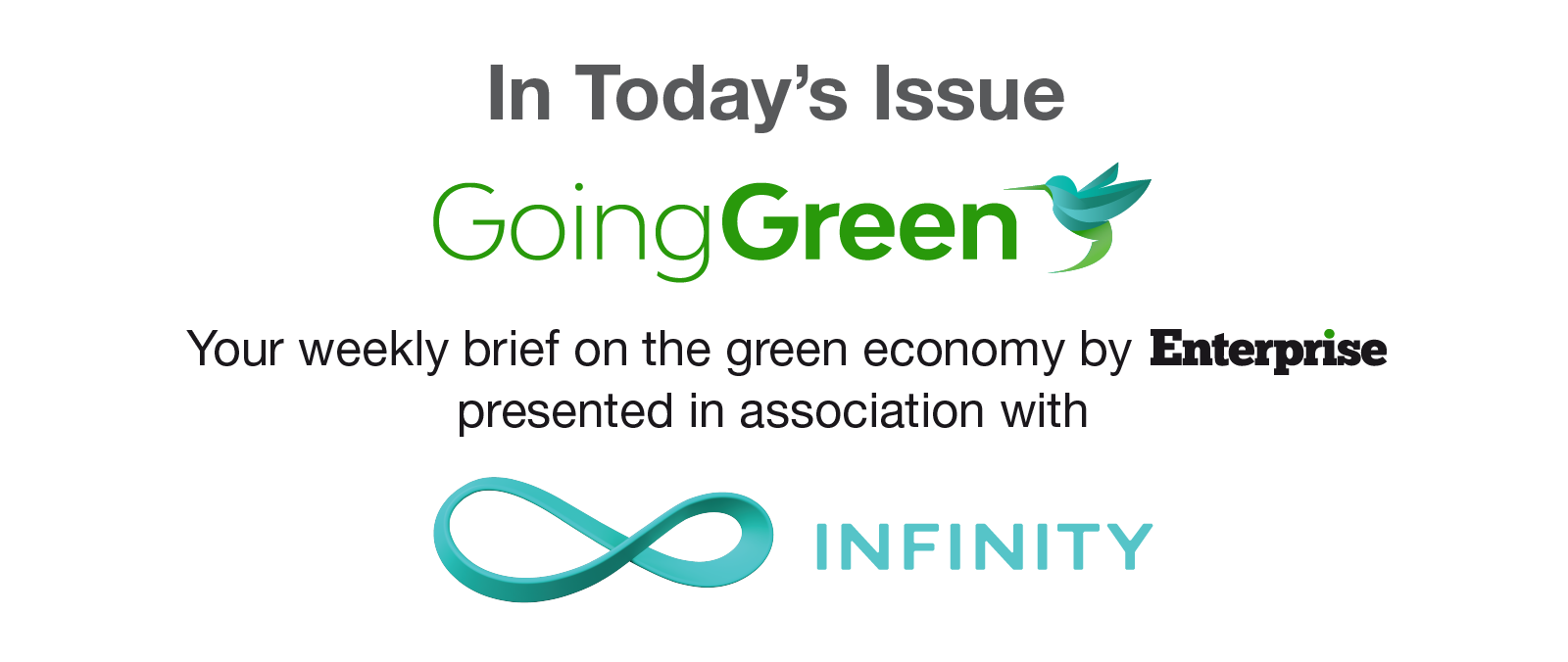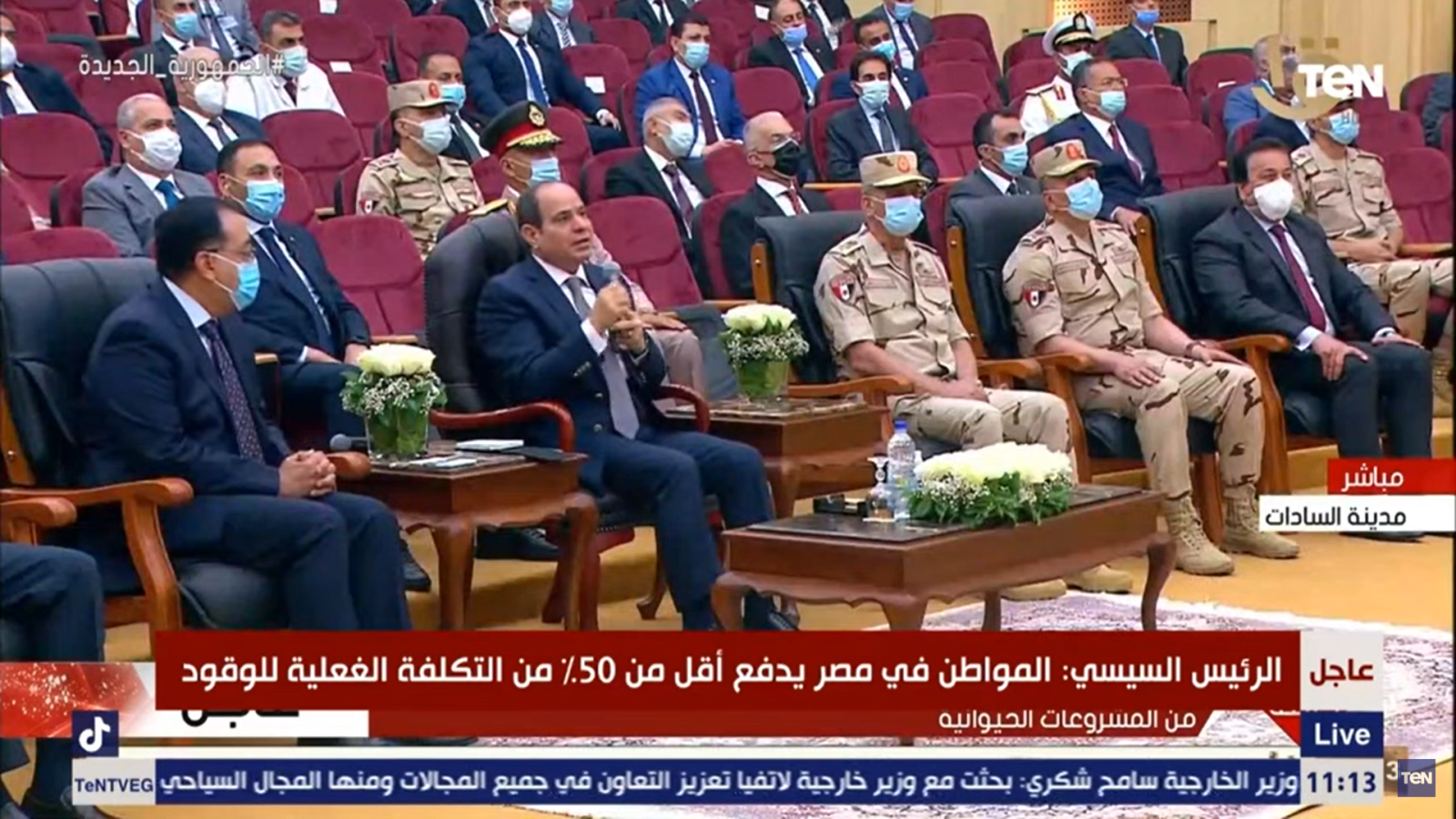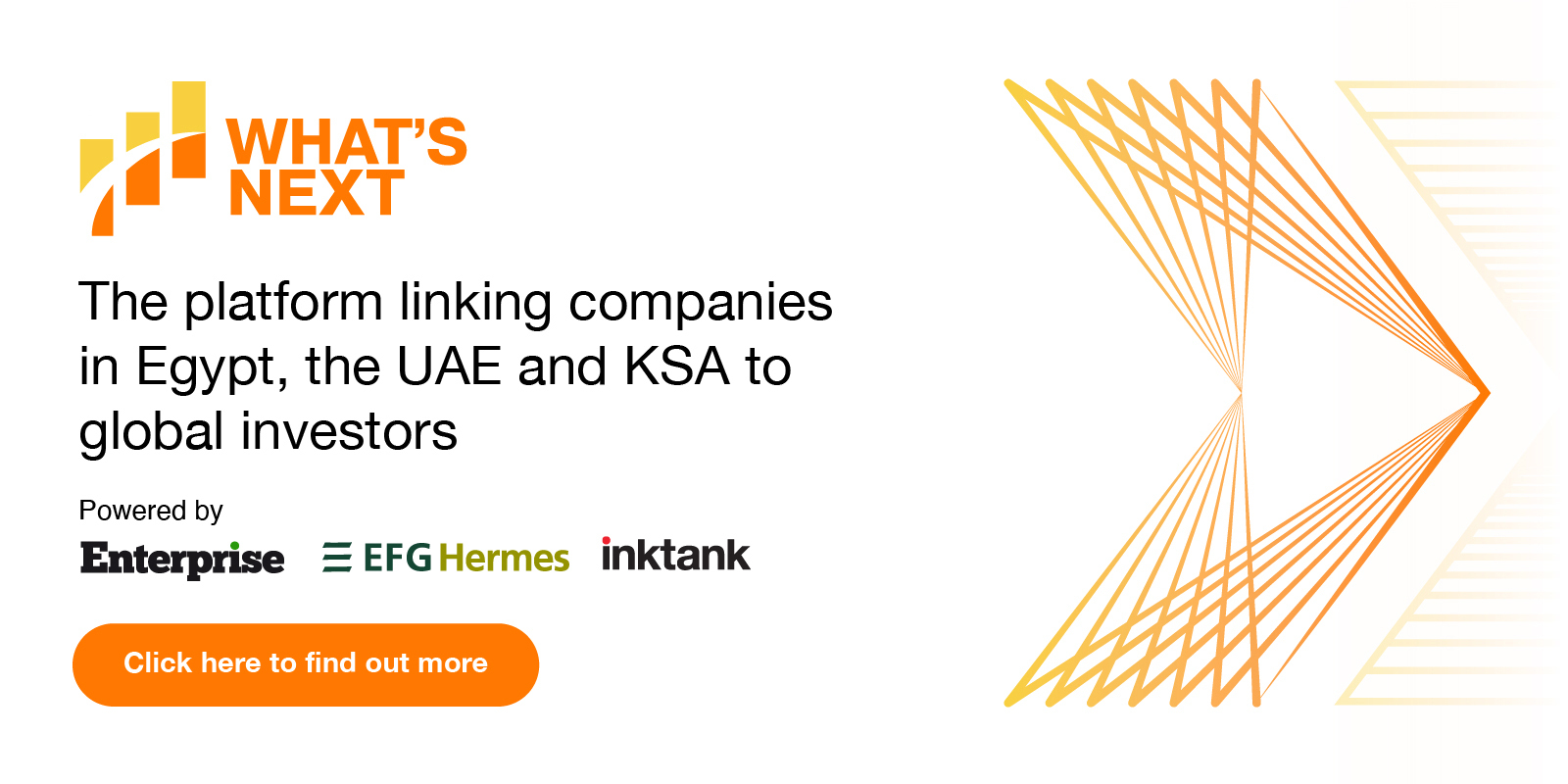- Gov’t launches consultations on its privatization strategy. (Privatization Watch)
- Your electric bill won’t be rising just yet. (Energy)
- Egypt joins India, Sri Lanka in threatening to block WTO food export agreement. (Trade)
- Beltone halts WM due diligence following Chimera bid. (M&A Watch)
- Rumors of the exit of Russian tourists may be exaggerated. (Tourism)
- Chinese auto firm BAIC is close to signing up to produce EVs in Egypt. (Automotive)
- The Federal Reserve meeting starts today — and it’s going to be a big one. (What’ We’re Tracking Today)
- The MENA region is falling short when it comes to VC climate funding. (Going Green)
- Russia isn’t having problems finding buyers for its crude. (Planet Finance)

Tuesday, 14 June 2022
AM — Gov’t launches consultations on its privatization strategy.
Plus: Global markets roiled ahead of Fed meeting
TL;DR
WHAT WE’RE TRACKING TODAY
What a read we have in store for you today, ladies and gentlemen. We got it all: privatization, subsidies, a report on capital markets, M&A news and potentially some good news on the tourism front. All this to say the news does not stop just because our kids are on summer breaks.
THE BIG STORY TODAY- The government’s privatization plans got a massive shot in the arm yesterday, with the Madbouly cabinet releasing a draft plan for how the state plans to move forward on that crucial policy front. Public consultation with business and economic leaders have taken place and will continue to do so to give the private sector a say in the plan.
THE BIG STORY ABROAD- The Federal Reserve is starting today what might be its most important meeting since March 2020 as last week’s terrible US inflation data sparks fears of a huge rate hike this week and triggers turmoil in the global markets. A growing consensus now expects the Fed to go ahead with a huge 75-bps rate hike tomorrow, inflaming concerns that the central bank is about to tip the US economy into recession and causing one of the worst days in the financial markets since the covid crash in March 2020.
Here’s a snapshot of what took place in the markets yesterday:
- Yields are screaming recession: A huge sell-off in the US bond market pushed yields to levels not seen since 2011 and caused a key part of the curve to invert — an event that is viewed by many analysts as a reliable indicator of a coming recession. (Read our mini-explainer on this for more)
- US stocks are in a bear market: The S&P 500 fell almost 4%, capping the index’s worst four-day run since March 2020 and leaving it down almost 22% from its recent peak.
- So much for that inflation hedge: BTC experienced a crash of epic proportions, plummeting more than 18% to lows not seen since December 2020 and prompting crypto exchange Binance and lender Celsius to suspend withdrawals.
- De-FAANGed: The index of mega-cap tech stocks (Think: Facebook, Apple, Alphabet etc.) plunged 6.5% to hit its lowest level since September 2020. The tech-dominated Nasdaq also fell to a 21-month low, tumbling 4.7% during the session and leaving it down almost 33% from its recent peak.
- This is global: Global stocks included on the FTSE Global All Cap Index fell 3.7% to the lowest level since October 2020.
50 basis points might now be the minimum: A 75-bps increase is now the base case for most of Wall Street, who are expecting the Fed to take decisive action to curb inflation, which unexpectedly rose to a fresh 40-year high in May. Everyone from Goldman and JPMorgan to Barclays and Jefferies are making the call, and the market is now pricing in rates to rise by 175 bps by September, suggesting one 75-bps increase and two 50-bps hikes. Others see a slight chance of an even larger 100-bps rise.
Why this matters to us: This is all going to have implications for what our own central bank does when it meets next week. We’ll be talking to analysts in the coming days about what this means for monetary policy at home ahead of our customary interest rate poll, which will drop next week before the 23 June policy meeting.
The sell-off is continuing in Asia this morning, with most of the region’s indexes firmly in the red by the time we hit ‘send’. The futures markets point to a mixed open in Europe, while stocks in the US are currently on course to open in the green.
One thing that isn’t in the green this morning: BTC is continuing to plunge towards USD 20k this morning and was down 13.6% on the previous 24 hours ahead of dispatch time.
Unsurprisingly, this is the big story everywhere this morning: Reuters | Associated Press | Bloomberg | FT | WSJ | CNBC.
Closer to home, covid cases in the UAE are once again on the rise, and the government is tightening restrictions, Taher Al Ameri, spokesperson of the UAE’s National Emergency Crisis and Disasters Management Authority said, according to state news agency WAM reports. New rules on indoor mask-wearing and fines for violators are now in force following a rise in hospitalizations caused by a recent uptick in cases, which” increased by over 100% in one week.” The Gulf state’s “green pass” system, which indicates vaccination and infection status, will be only valid for 14 days starting tomorrow, instead of the previous 30.
Riyadh is doing the opposite: Saudi Arabia has lifted almost all covid-related precautionary and preventive measures after achieving a high vaccination rate, the Interior Ministry said in a statement yesterday. Restrictions lifted include ending mask requirements.
WHAT’S HAPPENING TODAY-
We’re expecting EU Commission President Ursula von der Leyen to arrive in Cairo later this week to discuss the new three-way energy partnership that could see us exporting Israeli natural gas across the Mediterranean. Von der Leyen is currently on a two-day visit to Israel where she will meet with Prime Minister Naftali Bennett to discuss energy cooperation.
A delegation of Latvian business representatives continue their visit in Egypt today: The trip is aiming to “strengthen political and trade relations … particularly in digital and logistics sectors,” and is being accompanied by the country’s foreign minister, Edgars Rinkēvičs, who held talks with President Abdel Fattah El Sisi and Foreign Minister Sameh Shoukry on Sunday.
|
CIRCLE YOUR CALENDAR-
El Sisi, Amer attending Afreximbank annual meetings: The African Export-Import Bank’s (Afreximbank) annual meetings start tomorrow at the new capital’s St. Regis Almasa Hotel. President Abdel Fattah El Sisi, Central Bank of Egypt Governor Tarek Amer, and Afreximbank President Benedict Oramah will give keynote speeches at the event, which will focus primarily on implementing the Africa freetrade agreement that came into force in 2021.
There’s a handful of conferences coming up:
- The EU-Egypt Sustainable Food Value Chain conference, which will take place at Grand Nile Tower Hotel this Thursday.
- The Aswan Forum for Sustainable Peace and Development will take place in Cairo later this month on 21-22 June (Tuesday-Wednesday).
- The Big 5 Construct Egypt (pdf) construction industry exhibition runs from 25-27 June at the Egypt International Exhibition Center (EIEC) in Cairo.
Check out our full calendar on the web for a comprehensive listing of upcoming news events, national holidays and news triggers.

*** It’s Going Green day — your weekly briefing of all things green in Egypt: Enterprise’s green economy vertical focuses each Tuesday on the business of renewable energy and sustainable practices in Egypt, everything from solar and wind energy through to water, waste management, sustainable building practices and how you can make your business greener, whatever the sector.
In today’s issue: The MENA region is falling short when it comes to VC climate funding. The Middle East and North Africa (MENA) is one of the regions most exposed to the effects of climate change. Yet, when it comes to financing the type of innovation that might help to limit — or at the very least adapt to — its consequences, the region falls far behind, according to a recent report.
WE’RE LOOKING FOR SMART, TALENTED PEOPLE to help us build some very cool new things. Today, we run two daily publications, five weekly industry verticals, a monthly newsletter designed to make our readers feel just a bit smarter.
We have tons more in the pipeline — come help us build new publications. We offer the chance to work in a fast-paced newsroom on a broad range of topics and in a variety of formats. Our goal is simple: To create value for our growing community of >199k readers by telling stories that matter.
We’re looking for editors who want to run publications and teams, editors to help reporters craft stories and talented reporters. Egyptian and foreign nationals alike are welcome to apply. So are job-switchers: If you’re an equities analyst tired of the rat race, we’re a great place to come work.
Apply directly to jobs@enterprisemea.com and mention Patrick in your subject line.
Or hit this link for more information. It’s worth it — trust us.
***
PRIVATIZATION WATCH
Penny for the private sector’s thoughts on privatization

Gov’t gets the ball rolling on its privatization plans: Prime Minister Moustafa Madbouly launched the start of consultations with experts over its ambitious state ownership policy document as the state pushes with privatization efforts (watch, runtime: 1:40:59). Madbouly described the document during a meeting with economic experts as a “new stage that the state is embarking on to determine its vision for the economy.”
REMEMBER- The government is holding public consultations over its plan over three months. It’s all part of a wider plan announced in May to restructure the economy in favor of the private sector under efforts to cushion the economic blow caused by the Russian war in Ukraine. The state wants to more than double the private sector’s role in the economy to 65% over the next three years, and attract USD 40 bn in investment over the next four years.
We got new details on this yesterday after a new draft (pdf) courtesy of the cabinet was released. Under the current version of the document, the government would no longer reduce its footprint in the transport sector by 20% but would only exit around 11% of its activities in the IT sector, down from 22% in the previous document. An early copy of the document obtained by the local press last month suggested that the state intends to fully withdraw from as many as 79 industries over the next three years, including the auto sector, some manufacturing industries, and some types of agricultural production. Other sectors would be shared with the private sector, where the government would gradually reduce its involvement over a period of years.
The document also described the ways in which the government will sell down assets to private sector firms: Through IPOs, strategic partnerships, public private partnerships (PPP), concession contracts, build-own-operate (BOO) contracts, and the restructure and privatization of some public institutions.
Why the consultations? The dialogue aims to build a consensus over the government’s strategy and decide which sectors it could exit and over what timeframe, Madbouly said. The consultations will also address the demands and needs by the private sector to bolster its contribution in industries that the government would withdraw from.
The PM was keen to stress that the plan is not a knee-jerk response to a crisis: He said the state had begun preparing the document in November, stressing that the plan was not drawn up in response to the current global economic conditions. “We saw the need for the state to create its vision for the upcoming five years: which activities the state should stay [in] or exit to allow for greater private-sector contribution,” he said.
And that this isn’t top-down policy making: The document was drafted through work groups from ministries, private sector representatives and experts, he said.
*** How to participate: The government has launched an online platform where government officials will consult with stakeholders, including the Federation of Egyptian Industries, the chambers of commerce, elected representatives, and policy think tanks. Members of the public can access the platform to follow up on the process, and it will host workshops and provide a place to discuss elements of the government’s strategy. A mobile app called Sharek (Google Play) has been launched to provide news on the consultations. Expect it to come soon to the App Store, as it wasn’t there as of dispatch time.
ENERGY
Not shocking

No electricity price hikes coming this July, after all: The Madbouly government will freeze electricity prices to ease financial pressure on the public, which is already coping with high inflation, President Abdel Fattah El Sisi said yesterday (watch, runtime: 3:41).
Residential electricity bills were set to rise by as much as 21% at the start of the new fiscal year on 1 July, as per the government’s six-year roadmap (pdf) to restructure electricity prices by 2025. Households in the highest consumption tiers — which as of last year have not received subsidies — would have seen prices rise by up to 6%.
This is the third time we’ve delayed moving on electricity prices to protect citizens from the global macro climate, El Sisi said.
There are still around 17 mn households that are paying “subsidized” electricity prices that are around 50% less than what their monthly electricity consumption actually costs, El Sisi said, speaking during the inauguration of the livestock and dairy complex in Sadat City yesterday.
SMART POLICY- None of that subsidy coverage is coming out of state coffers: The government’s electricity price restructuring plan has introduced a cross-subsidy system in which high-consumption households are charged a high markup on their electricity prices, which is used to subsidize low-income and low-consumption households.
The same cannot be said about fuel subsidies: Egyptians also pay less than 50% of the actual price of fuel, he noted.
El Sisi wants farmers to up local wheat production: During his speech, the president said he was hoping that the local harvest would reach up to 10 mn tons, and thanked farmers who sold their wheat to the government amid the wheat supply crunch triggered by the crisis in Ukraine (watch, runtime: 2:42). “If there is a chance [why not] bring the procured wheat to nine or 10 mn from 6 mn? We don’t know where we’re heading and [how long] this thing [in Ukraine] will last,” he said.
CAPITAL MARKETS
We like debt and insurance, but hate stocks
The Financial Regulatory Authority is out with its quarterly report (pdf) detailing the state of capital markets in 1Q2022, and it was a mixed bag. Activity on the bourse and securitized bond issuances fell, while all other capital market activities saw an uptick in the first three months of the year.
The general consensus makes sense: Forms of financing and debt relying on steady, predictable cashflows and income rule in this era of instability, while speculative assets are seeing outflows. The report covers everything from ins. activity to different forms of financing, such as mortgage financing, factoring, consumer finance, and leasing. We break down the key figures below:
Share issuances were down: The number shares in new companies fell 34% y-o-y, while shares for capital increases saw a decline in value of 6%. On the upside, the EGX30’s market cap rose 19.9% y-o-y during the quarter to EGP 431.6 bn. Total turnover on the EGX (including shares and bonds) rose some 85.1% y-o-y to EGP 447.2 bn, with local investors accounting for 72.7% of the quarter’s trading activity. International investors accounted for 17.9% of trading, while regional investors represented 9.4% of the quarter’s trading activity.
Securitized bond issuances fell 6% y-o-y during the first quarter: By our count, these issuances include Corplease’s EGP 2.4 bn bond issuance (which will be disbursed in four tranches over 13 months, a EGP 170 mn short-term securitized bond sale from Premium Card, GB Auto’s EGP 4.3 bn securitized bond sale, the sale of the first EGP 300 mn tranche from Madinet Nasr Housing’s three-year EGP 3 bn securitization program, a EGP 794 mn issuance from Misr Italia Properties as part of its EGP 2.5 bn securitization program, UE Finance’s EGP 1.2 bn securitized bond issuance, and the first securitized bond sale from Al Ahly Leasing and Factoring Company worth EGP 747.5 mn.
Leasing + factoring + ins. activity had a healthy quarter: Leasing companies closed 11.7% more transactions during the quarter, with a 32.4% increase in the size of contracts. The value of factored securities also jumped 90.8% y-o-y to EGP 6.62 bn. Meanwhile, ins. activity rose in 1Q 2022, with total property ins. payments to ins. providers rising 9.8% y-o-y to EGP 13.21 bn, while total property ins. payouts from providers to beneficiaries rose 23.6% y-o-y to EGP 7.51 bn.
Mortgage financing was also on the up: The number of mortgage financing providers rose 75.8% y-o-y to 2,577, with a 91.3% increase in residential mortgage financing providers offsetting a 69.0% y-o-y drop in providers for non-residential purposes. The total amount of financing doled out in 1Q 2022 rose 103.5% y-o-y to EGP 3.47 bn.
Meanwhile, everyone and their mother is getting in on microfinancing: Some 36 new companies obtained microfinancing licenses during the first quarter of the year, according to the report. We’re also keeping an eye on EGX-listed Edita’s plans to establish a micro lender and e-Finance’s digital payments arm Khales, which applied for a microfinancing license earlier this year.
Consumer finance, by the numbers: Consumer financing hit around EGP 6.8 bn during the quarter, according to the report, which does not provide comparative figures for the same quarter last year. However, the FRA suggests that this number will increase moving forward as the government works to support local manufacturing and relying on locally-produced goods. Electronics and appliances accounted for the bulk (45.8%) of consumer finance activity, followed by cars and other automotive purchases (32.3%). Contact Financial held the biggest share (34.8%) of the consumer finance market in 1Q 2022, followed by valU (31.4%), MNT-Halan (14.2%), Premium International (8.0%), and CI Capital’s consumer financing arm Souhoola (4.1%).
M&A WATCH
Bye, WM. Wink wink, Chimera

Beltone halts WM due diligence after Chimera enters the chat: Beltone Financial has suspended the WM Consultancy-led consortium from doing due diligence after receiving a rival offer from Chimera Investments on Sunday. The financial services company had given WM the go-ahead to start due diligence last week but has been allowed by the Financial Regulatory Authority (FRA) to temporarily halt the process while it considers Chimera’s bid, according to a statement (pdf) from the regulator yesterday.
Chimera’s offer is better than WM’s: The Abu Dhabi-based investment firm has offered to purchase 51-90% of the company for EGP 1.49, a 10% premium on the EGP 1.35 bid submitted by WM and valuing it at around EGP 690 mn, by our math.
And there’s no due diligence involved: Chimera has not requested to do due diligence on Beltone ahead of a potential acquisition, according to the statement.
Beltone’s shares rose 11.2% during trading yesterday following the news, and are up 21% since 5 June when WM submitted its offer.
A word from the major shareholder: Orascom Financial Holding, which owns 58% of Beltone, said in a disclosure (pdf) yesterday that it will make the final decision on the offer following Chimera’s investment study.
How much would Chimera have to fork out? The value of the transaction would be up to EGP 619.4 mn.
Where this all started: An investor alliance led by WM submitted a non-binding offer to acquire 51-90% of the company for EGP 1.35 a share earlier this month. The “strategic investors” in the consortium remain largely unknown except for former Beltone employee Wael Mahgary, who heads up WM.
AUTOMOTIVE
El Nasr to sign contracts next month with China’s BAIC Group to jointly manufacture EVs in Egypt

We finally have a name: BAIC Group is El Nasr’s partner of choice in manufacturing electric vehicles. El Nasr Automotive has signed an MoU with Chinese car manufacturer BAIC Group to produce EVs in Egypt and is planning to sign final contracts by the end of July, a source with knowledge of the matter told Enterprise.
Who’s going to be doing what: The two sides are currently discussing the details of the contracts, with negotiations still ongoing on what each side would bring to the table. El Nasr is negotiating the transfer of intellectual property, China supplying components to the Egypt factory, setting up production lines, and hiring technical experts from abroad for technical assistance during the start of production, the source added.
The venture will be in line with local component quota requirements: Some 40-50% of the components will be manufactured and sourced in Egypt, they said. Over time, El Nasr aims to increase this proportion to 60-70%, the source added.
El Nasr is also partnering with Germany’s FEV Group to consult on how to build the EV battery sector from scratch while also looking for a Chinese partner to help with the manufacturing aspect, the source told us.
Production is expected to begin by the middle of next year with the aim of putting out the first EVs on the market by 4Q2023.
M&A WATCH
Tullow-Capricorn merger could fall through as investors voice concerns

Investor concerns call Tullow-Capricorn merger into question: Legal and General Investment Management (LGIM), one of Europe’s biggest asset managers, has voiced its “strong reservations” about the planned GBP 1.4 bn merger between Tullow Oil and Capricorn Energy — formerly Cairn Energy — in an all-stock transaction. There is “no clear strategic rationale” for the merger, LGIM said in a statement to the Financial Times.
Their primary concerns: A slowed shift from fossil fuels + a worse financial situation for Capricorn: LGIM said it is concerned that the merger would “worsen” Capricorn’s transition away from fossil fuels. The merger would also give indebted Tullow access to Capricorn’s money. “It looks a better [transaction] for Tullow than it does for Capricorn,” another Capricorn shareholder told the FT.
Tullow may have to cough up more to get Capricorn shareholders on board: Other investors are also concerned that the transaction terms work in the favor of Tullow’s shareholders, the FT writes. At least 75% of Capricorn’s shareholders need to vote for the acquisition before it goes through, suggesting that the two sides may need to amend the terms of the transaction.
Why do we care? Capricorn has had a presence in Egypt ever since it acquired Shell’s oil and gas assets in the Western Desert with partner Cheiron last year under an agreement worth up to USD 926 mn. Those assets would form the second largest item on the newly merged company’s balance sheet, after Tullow’s flagship Ghanaian oil fields. The new, larger group will be an “important supplier of gas in Egypt and Ghana,” the companies said.
What they said: “We value the views of all our stakeholders and will continue to engage with them over the coming months…We believe the combination will provide significant near-term value growth from reduced costs, accelerated growth and a regular dividend distribution policy,” Capricorn said in a statement.
STARTUP WATCH
CredPal secures USD six-figure funding from Cairo Angels, eyes stepping foot into Egypt

The Cairo Angels Syndicate Fund (CASF) has invested USD six figures in Nigerian BNPL fintech startup CredPal, the VC fund said in a press release (pdf). The capital will be used to finance the company’s expansion into Egypt, Kenya, Ghana, and Cameroon.
About CredPal: Launched in 2018 by Fehintolu Olaogun (LinkedIn) and Olorunfemi Jegede (LinkedIn), the BNPL startup allows its businesses and individuals to pay for their purchases in installments either online or offline. The company has been backed by Y-Combinator and Google and currently operates in Nigeria, Kenya and Angola.
This marks CASF’s first investment in Nigeria: “We couldn’t be more proud of our investment in CredPal, which is our first investment in Nigeria … BNPL has proven to be a successful business model that is a compelling alternative to traditional forms of consumer credit, especially in emerging and frontier markets,” said CASF CEO Aly El Shalakany.
Fintech is booming in Nigeria, as we discovered during our trip to Lagos a few weeks ago.
While we were there, we met CredPal co-founder and CEO Olaogun to chat about the local fintech scene.
TRADE
Not the time for neoliberal food trade policies
Egypt joins India, Sri Lanka in threatening to block WTO food export agreement: Egypt is among a group of countries threatening to block an agreement to curb food protectionism at the ongoing World Trade Organization (WTO) meeting, where members are searching for solutions to the escalating food crisis stemming from the war in Ukraine, according to Reuters.
The WTO is trying to reach two agreements at this week’s meeting in Geneva: One to prevent curbs on food exports and increase transparency, and another to maintain supplies to the World Food Programme.
The sticking point: The newswire reports a WTO spokesperson as saying that Egypt and Sri Lanka are holding out on signing the agreement because they want members to recognize that they might not be able to ship food overseas. Both countries are net food importers and have been especially hard hit by rising food prices and supply chain disruption caused by the war in Ukraine.
Egyptian officials submitted a resolution of their own, which the Foreign Ministry said yesterday aims to provide “practical solutions to support farmers and producers” and boost local grain and other crop production, without providing further information. This resolution was submitted on behalf of MENA and African countries who need to adapt their food supply chains to the current crisis, the statement reads, but with little detail.
Egypt has been restricting food exports since March, when it placed a ban on the export of staple foods such as wheat, flour, oils and corn.
India is making different demands: India wants the organization to give room for developing countries to maintain food stocks without being penalized for providing support to local farmers in breach of WTO rules.
India’s curbs aren’t making our lives any easier: The wheat export restrictions introduced last month have jeopardized what had looked to be one of the more reliable replacements for Ukraine and Russia, which prior to the war provided some 80% of Egypt’s wheat imports. Authorities are negotiating with Indian officials to be made exempt from the ban but nothing has yet been confirmed.
TOURISM
Good news, everybody

We could see an influx of Russian tourists this summer as Western sanctions imposed on Moscow prevent Russians from traveling to Europe, according to a report picked up by Zawya. The number of Russians arriving in Egypt between 1 June and 31 August will rise 30% from the same period in 2019, ticket bookings data collated by travel insights company ForwardKeys shows.
What they said: “From a tourism perspective, Turkey, the UAE and Egypt have benefited from the invasion of Ukraine as Russians are still welcome there, while other favorite destinations, having imposed sanctions, are effectively off-limits,” said VP of Insights at ForwardKeys Olivier Ponti.
The UAE + Turkey to see the biggest surge in tourists: Data shows that bookings to Turkey have climbed 96% since 2019 while the UAE stands to see a 84% increase in visitors during the three-month period. Across the region, bookings have doubled from 2019.
Both of these countries accept MIR: MIR — Russia’s answer to Mastercard and Visa — has become essential for Russians traveling overseas due to Western sanctions and the decisions by payment companies to suspend operations in Russia. This means that in most destinations Russians have no option but to use cash, but in countries that accept MIR like the UAE and Turkey allow them to make card payments and use ATMs. The service is beginning to be rolled out in the UAE while most hotels in Turkey now accept the cards.
The Russian press is really playing up that we want their tourists: Egypt is reportedly considering being MIR-friendly, the deputy head of Russian travel agency Tez Tour Egypt Tamer Said was recently quoted by Russian media as saying. Tourists could be able to use the cards by September, he reportedly told the Russian media.The finance and tourism ministries are reportedly discussing a plan to allow Russian companies to pay for hotels in RUB if they are unable to use USD, according to Russia’s TASS.
The war in Ukraine has hit Egyptian tourism: Occupancy rates in the Red Sea fell to 35-40% after the war broke out due to the loss of Ukrainian and Russian tourists. The two countries accounted for more than 30% of Egypt’s annual visitors prior to the conflict.
Egypt’s tourism revenues are expected to more than double in FY 2021-2022 from a year earlier, according to figures announced by Finance Minister Mohamed Maait last month. The Finance Ministry is projecting revenues to reach USD 10-12 bn in the current fiscal year, up from USD 4.9 bn a year earlier, Maait said.
LAST NIGHT’S TALK SHOWS
Leading the airwaves yesterday was the start of public consultations over the state’s proposed privatization policy document dominated the airwaves last night, receiving coverage from Ala Mas’ouleety (watch, runtime: 19:54), Kelma Akhira (watch, runtime: 4:12), and El Hekaya (watch, runtime: 4:34) among others.
“The document should not be limited to the state’s exit from industries,” economist and former deputy prime minister Ziad Bahaa El Din told Kelma Akira’s Lamis El Hadidi (watch, runtime: 6:56). Bahaa El Din, who attended the first of meetings by the government with economic experts, praised the government for “opening up the subject, drafting a document and making it accessible to the public,” but called for the strategy to provide a deeper roadmap of the relationship between the state and the economy. “What is needed is a clear definition of the state’s role and regulating it and providing opportunities to the private sector to be allowed to operate in available sectors,” he said. “The closer the document is in setting the rules of the game, the better the interest for the state and private sector.”
Electricity price freeze: Yesterday’s decision by the government to pause hikes in electricity prices led conversations on talk shows, with coverage from Al Hayah Al Youm (watch, runtime: 4:04), El Hekaya (watch, runtime: 2:11 ) and Kelma Akhira (watch, runtime: 3:29). El Hadidi wasn’t particularly thrilled about the across-the-board price freeze, arguing that only low- and medium-consumption brackets should be shielded from rising prices.
^^ We have the details on both of these stories in this morning’s news well, above.
Also getting coverage last night:
- El Sisi inaugurates dairy complex + approves EGP 10 bn loans for livestock farmers: President Abdel Fattah El Sisi’s inauguration of a meat and dairy production complex in Sadat City got coverage from Al Hayah Al Youm (watch, runtime: 2:57). El Sisi approved EGP 10 bn in soft loans to support the development of livestock and improve the lives of small-scale breeders.
- Changing of the guard at Al Ahly: The football club announced yesterday that it would be parting ways with coach Pitso Mosimane by mutual consent and thanked him for his work at the club. The news comes just three months after he signed a new two-year contract with the club. Masa’a DMC (watch, runtime: 13:12), Ala Mas’ouleety (watch, runtime: 7:16) and El Hekaya (watch, runtime: 5:04) all had coverage.
EGYPT IN THE NEWS
It’s a slow morning in the foreign press as far as Egypt is concerned. The main event is brought to us by Kashat’s Karim Nour, who talks to Entrepreneur about the importance of communicating with your customers. "We make it a point to invite a handful of customers to our office every month to discuss…user experience. This gives us in-depth knowledge of how they are using our app and what we can do better to meet their needs — and all it costs is a cup of coffee," he tells the magazine.
A women-only ride-hailing service: Al Arabiya profiles Shima Fikry, a woman from Sharkia who founded a business providing ride-hailing services exclusively to women.
ALSO ON OUR RADAR
e-Health kicks off operations: EGX-listed e-Finance’s digital healthcare services arm, e-Health, has begun work on the government’s universal health ins. scheme, e-Finance said in a release (pdf). The state-owned company will manage and operate the tech backbone of the plan, with the first phase of operations seeing it roll out its services to around 140 hospitals in five governorates: Port Said, Luxor, Ismailia, Suez and South Sinai.
e-Health was created late last year to manage the system’s operations and digital payment services, which will be integrated with the government's e-payments channels and banking institutions. The company also plans to provide digital services for other companies in the sector. e-Finance owns 35% of the company’s shares, and the Universal Health Ins. Authority holds 50%.
Other things we’re keeping an eye on this morning:
- Maersk has held follow-up talks about clean energy with Electricity Minister Mohamed Shaker, a few months after agreeing to explore collaboration with Egyptian authorities on producing green fuels. Representatives from Danish infrastructure investor CIP were also involved in the talks. (Al Borsa)
- The Suez Canal has extended markdowns on transit fees for LNG and LPG carriers until the end of the year. (Statement)
- Netherlands-based fertilizer producer OCI (backed by Nassef Sawiris) is importing more ammonia from Egypt instead of locally producing the chemical due to surging energy costs in Europe. (Wall Street Journal)
- The SME development agency wants to get more small businesses selling their products on e-commerce platforms Noon and Farmafelicidad.com. (Amwal Al Ghad)
- UK-based SDX Energy struck oil after completing drilling at its West Gharib concession, less than a week after it made its largest gas discovery at South Disouq. (Disclosure)
PLANET FINANCE
Russia doesn’t seem to be having problems finding buyers for its crude: Moscow is selling an “unprecedented” volume of crude to buyers in Asia as it redirects flows ahead of the EU’s partial oil embargo, which will see it cut imports by 90% by the end of the year, Bloomberg reports. Asian purchasers, led by China and India, are clinching nearly half of crude shipped from Russia’s ports, and last week around 860k barrels a day of Asia-bound crude were loaded from Russia’s western terminals alone.
The same can’t be said for Libya: Oil production in Libya has all but ground to a halt after demonstrators forced the shutdown of two of the country’s key oil ports, placing further stress on the tight global market. (Bloomberg)
|
|
EGX30 |
10,015 |
-0.8% (YTD: -16.2%) |
|
|
USD (CBE) |
Buy 18.67 |
Sell 18.75 |
|
|
USD at CIB |
Buy 18.69 |
Sell 18.75 |
|
|
Interest rates CBE |
11.25% deposit |
12.25% lending |
|
|
Tadawul |
12,053 |
-2.2% (YTD: +6.8%) |
|
|
ADX |
9,459 |
-1.8% (YTD: +11.4%) |
|
|
DFM |
3,287 |
-2.7% (YTD: +2.9%) |
|
|
S&P 500 |
3,750 |
-3.9% (YTD: -21.3%) |
|
|
FTSE 100 |
7,206 |
-1.5% (YTD: -2.4%) |
|
|
Euro Stoxx 50 |
3,503 |
-2.7% (YTD: -18.5%) |
|
|
Brent crude |
USD 122.19 |
+0.2% |
|
|
Natural gas (Nymex) |
USD 8.61 |
-2.7% |
|
|
Gold |
USD 1,831.80 |
-2.3% |
|
|
BTC |
USD 23,002 |
-15.9% (YTD: -49.6%) |
THE CLOSING BELL-
The EGX30 fell 0.8% at yesterday’s close on turnover of EGP 646 mn (22.4% below the 90-day average). Foreign investors were net sellers. The index is down 16.2% YTD.
In the green: Rameda (+1.9%), Eastern Company (+1.7%) and Abu Dhabi Islamic Bank Egypt (+0.8%).
In the red: GB Auto (-6.5%), Madinet Nasr Housing (-5.7%) and Ezz Steel (-4.9%).


The MENA region is falling short when it comes to VC climate funding: The Middle East and North Africa (MENA) is one of the regions most exposed to the effects of climate change. Yet, when it comes to financing the type of innovation that might help to limit — or at the very least adapt to — its consequences, the region falls far behind, according to a report (pdf) by the Clean Energy Business Council (CEBC). Out of the 3.8k startups established in the region since 2010 only 49 were climate tech startups and in the past three years interest in fintech has vastly overshadowed climate focused outfits.
What actually counts as climate tech? Climate tech is a blanket term that encompasses everything from energy efficiency and storage, to recycling, food sustainability and environmental protection. Of the various types of climate tech, CEBC’s survey suggests that clean energy and transport projects have the greatest potential in the MENA region. Conversely, startups working on agricultural sustainability and carbon capture are seen as least likely to generate a return on investment.
There have been successes in the Egyptian space: Several Egyptian climate-focused startups have succeeded in attracting VC money in recent years. Waste management companies Bekia and Tagaddod have both attracted funding, biofertilizer outfit Bermoda raised seed investment in 2018, and, most recently, energy efficiency startup Pylon closed a USD 19 mn seed round.
But MENA is far behind other parts of the world: The region accounted for just 1.5% of all VC funding into climate startups between 2013 and 2019. In comparison, US companies attracted almost half, a third went to China and European startups received almost 12%.
The number of funding rounds for climate tech startups remained relatively flat between 2015 and 2020. There were a total of 20 funding rounds in the MENA region during the six-year period, with 2019 constituting the “boom” year when eight startups received funding.
Compare that to fintech, which is easily the most saturated market for startup funding right now. There were almost 7x more fintech rounds during the six-year period than for climate startups. In 2020 alone, there were 41 fintech rounds in MENA, more than double the 20 climate rounds recorded between 2015 and 2020.
What’s the problem? Part of it is down to the nature of the business: Many types of business operating in climate tech do not enjoy the same rapid scalability as other technology-based companies, and do not offer as easy an exit due to being asset-heavy.
Then there’s the lack of infrastructure: “The whole supply chain of the green economy is not there, neither at the level of investors nor at the level of startups,” Khaled Ismail, managing partner of early-stage fund HIMangel, previously told us.
Investors are fairly confident about Egypt in comparison to other countries in the region, and have a particularly soft spot for fintech and education, according to the CEBC’s survey. Crucially though, investors also displayed confidence in Egyptian climate tech startups.
The reasons for being downbeat on the sector were diverse: The number of investors citing potential difficulties with scaling and exiting businesses, economic instability, regulatory uncertainty, and a lack of businesses to invest in were fairly even.
But VCs may have to alter their expectations and play the long game: Many VC funds are subject to unrealistic expectations about new investments, mainly stemming from a belief that climate initiatives necessitate making a huge financial compromise and that sustainability is only the responsibility of government policy. A desire to secure high ROIs from a quick exit, the report notes, is also a major roadblock VCs need to overcome.
There are still alternatives out there: Revenue-based financing, where investors offer financing in exchange for a portion of revenues, is a part of the answer. Impact investment funds like the UNDP and Catalyst Partners’ EGP 500 mn partnership could also help drive investment.
But most effective might be government-led initiatives that support climate focused startups through clear policy and financing, the report suggests. Clear frameworks that scale back the barriers to establishing climate tech startups and private investment would help in this regard. So would more public-private partnerships, R&D financing and more accelerator programs, the CEBC adds.
Your top green economy stories for the week:
- A new plan to raise rice production: Egypt plans to boost its rice productivity and reduce water usage by relying on agricultural drainage water for cultivation, an official at the Agriculture Ministry, told Sky News Arabia.
- Plastic use is set to triple by 2060 in the absence of drastic action: Global use of plastics could rise to 1.2 bn tons in 2060, up from 460 mn tons in 2019, while plastic waste could top 1 bn tons.
- This is a start: Plastic Bank will recycle 20k kg of plastic produced by German snackmaker Lorenz Snack World in Egypt this year.
CALENDAR
OUR CALENDAR APPEARS in two sections:
- Events with specific dates or months are right here up top
- Events happening in a quarter or other range of time with no specific date / month appear at the bottom of the calendar.
JUNE
14-15 June (Tuesday-Wednesday): Federal Reserve interest rate meeting.
15-18 June (Wednesday- Saturday): Afreximbank annual meetings, St. Regis Almasa Hotel, new capital, Egypt.
15-18 June (Wednesday-Saturday): St. Petersburg International Economic Forum (SPIEF), St. Petersburg.
16 June (Thursday): EU-Egypt Sustainable Food Value Chain conference, Grand Nile Tower Hotel, Cairo.
16 June (Thursday): End of 2021-2022 academic year for public schools.
21-22 June (Tuesday-Wednesday): Aswan Forum for Sustainable Peace and Development, Cairo.
21-23 June (Tuesday-Thursday): Commonwealth Business Forum, Kigali, Rwanda.
23 June (Thursday): Central Bank of Egypt’s Monetary Policy Committee meeting.
25-27 June (Saturday-Monday): Big 5 Construct, Egypt International Exhibition Center.
26 June (Sunday): The deadline for private companies to pre-register ahead of bidding for the second phase of the PPP national project to establish and operate 1k language schools.
27 June-3 July (Monday-Sunday): World University Squash Championships, New Giza.
30 June (Thursday): June 30 Revolution Day, national holiday.
30 June (Thursday): Deadline for bids for National Democratic Party HQ redevelopment contract.
June: Egypt will launch a unified ticketing system for all means of transport at the Adly Mansour Interchange Station.
June: Egypt and Israel will sign an agreement with the EU to increase LNG exports.
JULY
July: A law governing ins. for seasonal contractors will come into effect.
July: Fuel pricing committee meets to decide quarterly fuel prices.
July: Actis’ expected sale of its majority stake in Lekela to Infinity and Masdar’s Infinity Power.
First week of July: The national dialogue called for by President Abdel Fattah El Sisi kicks off.
1 July (Friday): FY 2022-2023 begins.
1 July (Friday): Official rollout of e-receipt system begins.
8 July (Friday): Arafat Day.
9-13 July (Saturday-Wednesday): Eid Al Adha, national holiday.
21 July (Thursday): European Central Bank monetary policy meeting.
26-27 July (Tuesday-Wednesday): Federal Reserve interest rate meeting.
30 July (Saturday): Islamic New Year.
Late July – 14 August: 2Q2022 earnings season.
AUGUST
August: Work to extend the capacity of the Egypt-Sudan electricity interconnection to 600 MW to be completed.
18 August (Thursday): Central Bank of Egypt’s Monetary Policy Committee meeting.
SEPTEMBER
September: Egypt will display its first naval exhibition with the title Naval Power.
September: Central Bank of Egypt’s Innovation and Financial Technology Center to launch incubator for 25 fintech startups.
6-9 September (Tuesday-Friday): Gate Travel Expo 2022, El Kobba Palace, Cairo.
8 September (Thursday): European Central Bank monetary policy meeting.
18 September (Sunday): Deadline for brokerage firms, asset managers and financial advisors to register with the Egyptian Securities Federation.
20-21 September (Tuesday-Wednesday): Federal Reserve interest rate meeting.
22 September (Thursday): Central Bank of Egypt’s Monetary Policy Committee meeting.
26–27 September (Monday-Tuesday): The Africa Women Innovation and Entrepreneurship Forum (AWIEF) at the Cairo Marriott Hotel.
OCTOBER
October: Fuel pricing committee meets to decide quarterly fuel prices.
1 October (Saturday): Use of Nafeza becomes compulsory for air freight.
6 October (Thursday): Armed Forces Day, national holiday.
8 October (Saturday): Prophet Muhammad’s birthday, national holiday.
10-16 October (Monday-Sunday): World Bank and IMF annual meetings chaired by CBE Governor Tarek Amer, Washington, DC.
18-20 October(Tuesday-Thursday): Mediterranean Offshore Conference, Alexandria, Egypt.
27 October (Thursday): European Central Bank monetary policy meeting.
Late October – 14 November: 3Q2022 earnings season.
NOVEMBER
November: Cairo Water Week 2022.
1-2 November (Tuesday-Wednesday): Federal Reserve interest rate meeting.
3 November (Thursday): Central Bank of Egypt’s Monetary Policy Committee meeting.
3-5 November (Thursday-Saturday): Egypt Fashion Week.
4-6 November (Friday-Sunday): The Autotech auto exhibition kicks off at the Cairo International Exhibition and Convention Center.
7-18 November (Monday-Friday): Egypt will host COP27 in Sharm El Sheikh.
21 November-18 December (Monday-Sunday): 2022 Fifa World Cup, Qatar.
13-14 December (Tuesday-Wednesday): Federal Reserve interest rate meeting.
15 December (Thursday): European Central Bank monetary policy meeting.
DECEMBER
22 December (Thursday): Central Bank of Egypt’s Monetary Policy Committee meeting.
JANUARY 2023
January EGX-listed companies and non-bank lenders will submit ESG reports for the first time.
January: Fuel pricing committee meets to decide quarterly fuel prices.
MAY 2023
22-26 May (Monday-Friday): Egypt will host the African Development Bank (AfDB) annual meetings in Sharm El Sheikh.
EVENTS WITH NO SET DATE
2Q2022: The Sovereign Fund of Egypt will invest in two companies in the financial inclusion and non-banking financial services sectors.
End of 2Q2022: The Financial Regulatory Authority’s new Ins. Act should be approved.
End of 2Q2022: Door for bidding for the contract to redevelop the site of the former National Democratic Party HQ to close.
1H2022: Target date for IDH to close its acquisition of 50% of Islamabad Diagnostic Center.
1H2022: e-Finance’s digital healthcare service platform, eHealth, will launch its services.
1H2022: The government will respond to private companies’ bids to build desalination plants.
1H2022: Egypt’s second corporate green bond issuance expected to be announced.
End of 1H2022: Emirati industrial company M Glory Holding and the Military Production Ministry will begin the mass production of dual fuel pickup trucks that can run on natural gas.
2H2022: The inauguration of the Grand Egyptian Museum.
2H2022: IEF-IGU Ministerial Gas Forum, Egypt. Date + location TBA.
2H2022: The government will have vaccinated 70% of the population.
3Q2022: Ayady’s consumer financing arm, The Egyptian Company for Consumer Finance Services, to release its first financing product.
End of 2022: e-Aswaaq’s tourism platform will complete the roll out of its ticketing and online booking portal across Egypt.
2023: Egypt will host the Asian Infrastructure Investment Bank’s Annual Meeting of the Board of Governors in 2023.
**Note to readers: Some national holidays may appear twice above. Since 2020, Egypt has observed most mid-week holidays on Thursdays regardless of the day on which they fall and may also move those days to Sundays. We distinguish above between the actual holiday and its observance.
Enterprise is a daily publication of Enterprise Ventures LLC, an Egyptian limited liability company (commercial register 83594), and a subsidiary of Inktank Communications. Summaries are intended for guidance only and are provided on an as-is basis; kindly refer to the source article in its original language prior to undertaking any action. Neither Enterprise Ventures nor its staff assume any responsibility or liability for the accuracy of the information contained in this publication, whether in the form of summaries or analysis. © 2022 Enterprise Ventures LLC.
Enterprise is available without charge thanks to the generous support of HSBC Egypt (tax ID: 204-901-715), the leading corporate and retail lender in Egypt; EFG Hermes (tax ID: 200-178-385), the leading financial services corporation in frontier emerging markets; SODIC (tax ID: 212-168-002), a leading Egyptian real estate developer; SomaBay (tax ID: 204-903-300), our Red Sea holiday partner; Infinity (tax ID: 474-939-359), the ultimate way to power cities, industries, and homes directly from nature right here in Egypt; CIRA (tax ID: 200-069-608), the leading providers of K-12 and higher level education in Egypt; Orascom Construction (tax ID: 229-988-806), the leading construction and engineering company building infrastructure in Egypt and abroad; Moharram & Partners (tax ID: 616-112-459), the leading public policy and government affairs partner; Palm Hills Developments (tax ID: 432-737-014), a leading developer of commercial and residential properties; Mashreq (tax ID: 204-898-862), the MENA region’s leading homegrown personal and digital bank; Industrial Development Group (IDG) (tax ID:266-965-253), the leading builder of industrial parks in Egypt; Hassan Allam Properties (tax ID: 553-096-567), one of Egypt’s most prominent and leading builders; and Saleh, Barsoum & Abdel Aziz (tax ID: 220-002-827), the leading audit, tax and accounting firm in Egypt.






